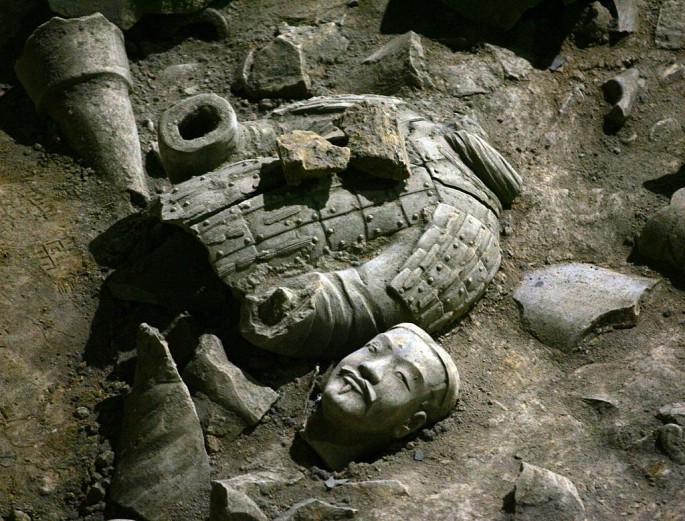Two of China's top leaders stressed the importance of preserving relics as the embodiment of the country’s culture, heritage and civilization, and called for more efforts from the public to protect them.
Chinese President Xi Jinping and Premier Li Keqiang both urged the public to uphold traditional values and safeguard their ancestors' legacy by protecting the relics that signify them.
According to China Daily, China's top leaders made the statements separately but were after the same thing: protection of the relics, some of which have been lost to scoundrels and tomb raiders.
Tomb Raiding in China
"Tomb raiding is already a full-fledged industry in China," China Cultural Relics Society honorary president Xie Zhensheng was quoted saying by the Epoch Times.
The report, which tackled the loss of so many heritage sites, explained that China is undergoing a losing battle with tomb raiders.
Abiding by the saying in the country, "to get rich overnight, raid tombs," hundreds of people have been found to have taken advantage of the silent resistance of the dead by taking treasures they have taken to their graves.
In fact, May last year saw the highest number of tomb raiding operations with 175 suspects arrested in six provinces alone.
After four months, the leader of the country's cultural heritage protection bureau Li Xiaoji admitted that the bout to protect China's cultural treasures were "grim" and "severe" due to the persistence of the tomb raiders.
According to the Epoch Times, the tomb raiders' first step after acquiring cultural relics is to ship them abroad to be sold at a higher price.
"If any of the antiques shipped overseas fail to fetch a better price than that on the mainland, they will be sent back to China through various channels," Anyang Relic Collection Association deputy director Li Maizhu revealed.
Calling for Protection
While the top leaders of China can call for respect for tradition by protecting cultural relics, public cooperation will still be the best remedy for this kind of dilemma, according to China Cultural Relic Protection Foundation head Li Xiaojie.
"Social efforts should take the jobs that are currently difficult for governments to do. Governments can still offer guidance, but it is more efficient for the whole of society to gear up for the work," he said.
Archaeology of the Chinese Academy of Social Sciences director Wang Wei has the same idea and proposed that urban development should not hinder the protection of cultural heritage.
"Protection of cultural heritage doesn't have to conflict with urban construction. Establishment of archaeological relic parks in recent years is an attempt to combine the two," Wang explained during a national cultural heritage conference held in Beijing on Tuesday.



























